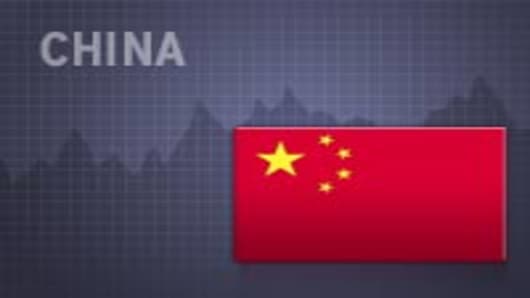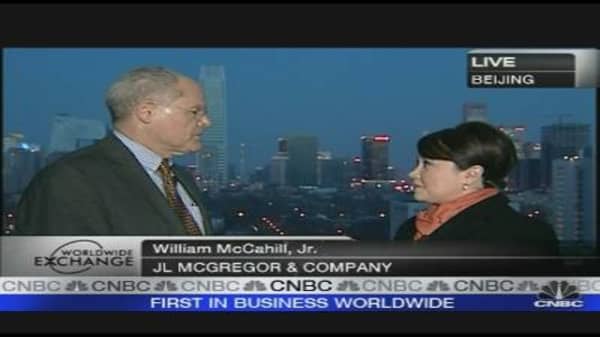China has wrapped up its nine-day 11th National People's Congress and if one thing has been evident, it's that Beijing knows how it's handling the current economic crisis is being scrutinized around the world.
That perhaps, is one reason why Premier Wen Jiabao was deliberate in his comments about China's holdings of U.S. Treasurys. Speaking to journalists after the conclusion of the NPC meetings, Wen admitted he is worried about the safety of those investments.
In a message partially directed at Washington, Wen called on the United States to “maintain credibility, honor its promises and guarantee the safety of Chinese assets.”
Analysts estimate that of the nearly $2 trillion China holds in foreign exchange reserves, about two-thirds is invested in U.S. government and agency debt.
With the Treasury about to issue billions more in bonds, the last thing Washington needs is for China to stop buying them. Even the threat of Beijing slowing down purchases of dollar assets is enough to spook markets. Not only does the U.S. need China to continue buying treasurys, it prefers China step up those purchases.
And Beijing knows that – hence the well-timed comments asking for additional reassurances. After all, just a few weeks ago, U.S. Secretary of State Hillary Clinton was in Beijing telling the Chinese those holdings were a reliable investment.
Up until the middle of last year, officials were more focused on preventing the Chinese economy from overheating. But when it became clear the western financial crisis was morphing into a full-blown synchronized global economic slowdown, Beijing made a fast U-turn.
“No one can complain the leadership took too long to respond,” says Xu Sitao from the Economist Group.
Wen, known to the masses as Grandpa Wen, and whose popularity soared because of his handling of last year's earthquake, has given repeated assurances that the Chinese economy will indeed grow by the government's stated target of 8 percent this year. This week's parliament meeting was carefully orchestrated to demonstrate the government's resolve and unity in tackling the current economic crisis.




